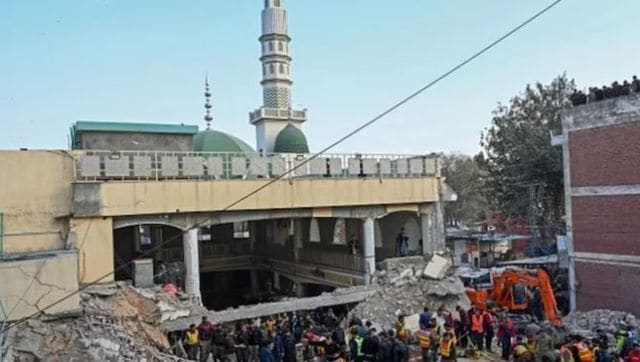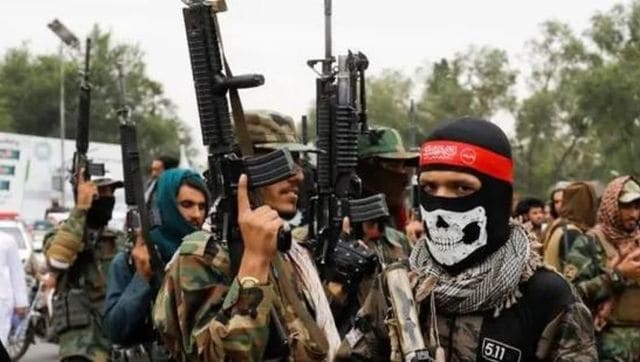‘Amid Pakistan’s economic crisis and the Taliban’s rule in Afghanistan, the Pakistani Taliban have reemerged as an increasingly potent threat,’ read the report by a US think tank.
Islamabad: While Pakistan grapples with a severe economic crisis leading to drastic inflation and “ever-turbulent” political fiasco, the growing threat of Tehreek-i-Taliban Pakistan (TTP), especially with the support of the Afghan Taliban, presents yet another challenge for the struggling nation, according to a report from a US think tank.
“Amid Pakistan’s economic crisis and the Taliban’s rule in Afghanistan, the Pakistani Taliban have reemerged as an increasingly potent threat,” read the United States Institute of Peace (USIP) report, titled “Is Pakistan Poised to Take on the TTP?”
The report features views of USIP’s Asfandyar Mir, Andrew Watkins and Tamanna Salikuddin on what the recently Peshawar mosque blast, which claimed the lives of over 100 people, indicates about the strength of the TTP, how Islamabad could respond and the Afghan Taliban’s posture toward the TTP.

At first, the attack was claimed by a faction of the TTP, also known as the Pakistan Taliban, however, later TTP’s central leadership denied its involvement.
TTP is ‘major medium to long-term challenge for Pakistan’
The Peshawar attack’s lethality and the “ability of the attackers to penetrate deep inside what should be the most secure part of Peshawar” indicates that TTP has “re-constituted a critical capability of urban attacks” in Pakistan, said Asfandyar Mir in the report.
Further, he noted that this “signifies the steadily ascendant trajectory of the TTP, presenting a major medium to long-term challenge for Pakistan.”
TTP’s increasing cadre of trained militants, suicide bombers, weapons, and equipment, as well as its political cohesion, are all indicators of its growing political and material strength, which is the cause of its escalating violent campaign, the USIP official said.

“Much of the TTP’s political leadership and capability is based in Afghanistan. In Pakistan, the TTP has regained some territorial influence in southern districts of Khyber Pakhtunkhwa, like South Waziristan, North Waziristan, Tank, Bannu and Lakki Marwat. The TTP is able to fundraise through extortion inside Pakistan as well as in Afghanistan — across provinces, there are fundraising drives for the group’s so-called jihad,” Mir said.
‘Support’ from Afghan Taliban
The Taliban leaders in Afghanistan remain “very supportive” of the TTP and are providing it with a “permissive safe haven,” as per the report.
Not just in Pakistan, TTP holds a lot of popular support in Afghanistan, where both Taliban and non-Taliban constituencies get behind it due to a “fervent dislike for Pakistan”.
“A handful of Taliban leaders, in particular Taliban Interior Minister Siraj Haqqani, have restrained the TTP on Pakistani requests on occasion. Yet the balance of opinion within the Taliban is strongly in favor of the TTP and its campaign. In particular, Taliban Amir Hibatullah Akhundzada agrees with the TTP that Pakistani system is ‘un-Islamic’,” the report quoted Asfandyar Mir as saying.
Amid rising tensions between Afghanistan and Pakistan, the Afghan Taliban appear “unlikely to shift their strategic calculus on providing support to the TTP,” said USIP’s Andrew Watkins.
“In the weeks prior and days after the (Peshawar) attack, their public messaging has been almost defiant, offering the weakest of condemnations and painting Pakistan as ultimately responsible for militancy within its borders,” Watkins said.
He added, “This undiplomatic rhetoric underscores the Taliban’s determination to continue supporting the TTP, even in the face of intensified pressure from Pakistan.”
Pakistan’s Response
Despite a surge in terror activities across the country, Pakistan’s response to the “TTP’s resurgence remains incoherent — and it is unlikely to improve in the near-term,” said Mir.
“After downplaying the TTP’s strength as well as the Taliban’s influence on and relationship with TTP for several years, Pakistani leaders now seem to be contending with the depth of Taliban support for the TTP. Yet Pakistani officials still seem to be searching for a deal — ideally a cease-fire arrangement — through the Taliban,” the official added.
source: firstpost


